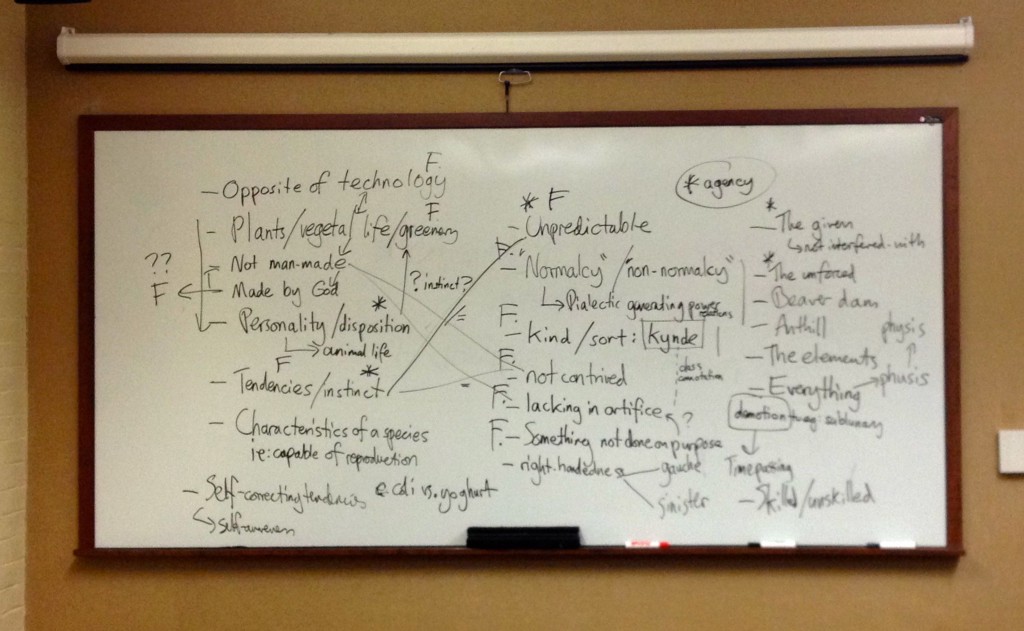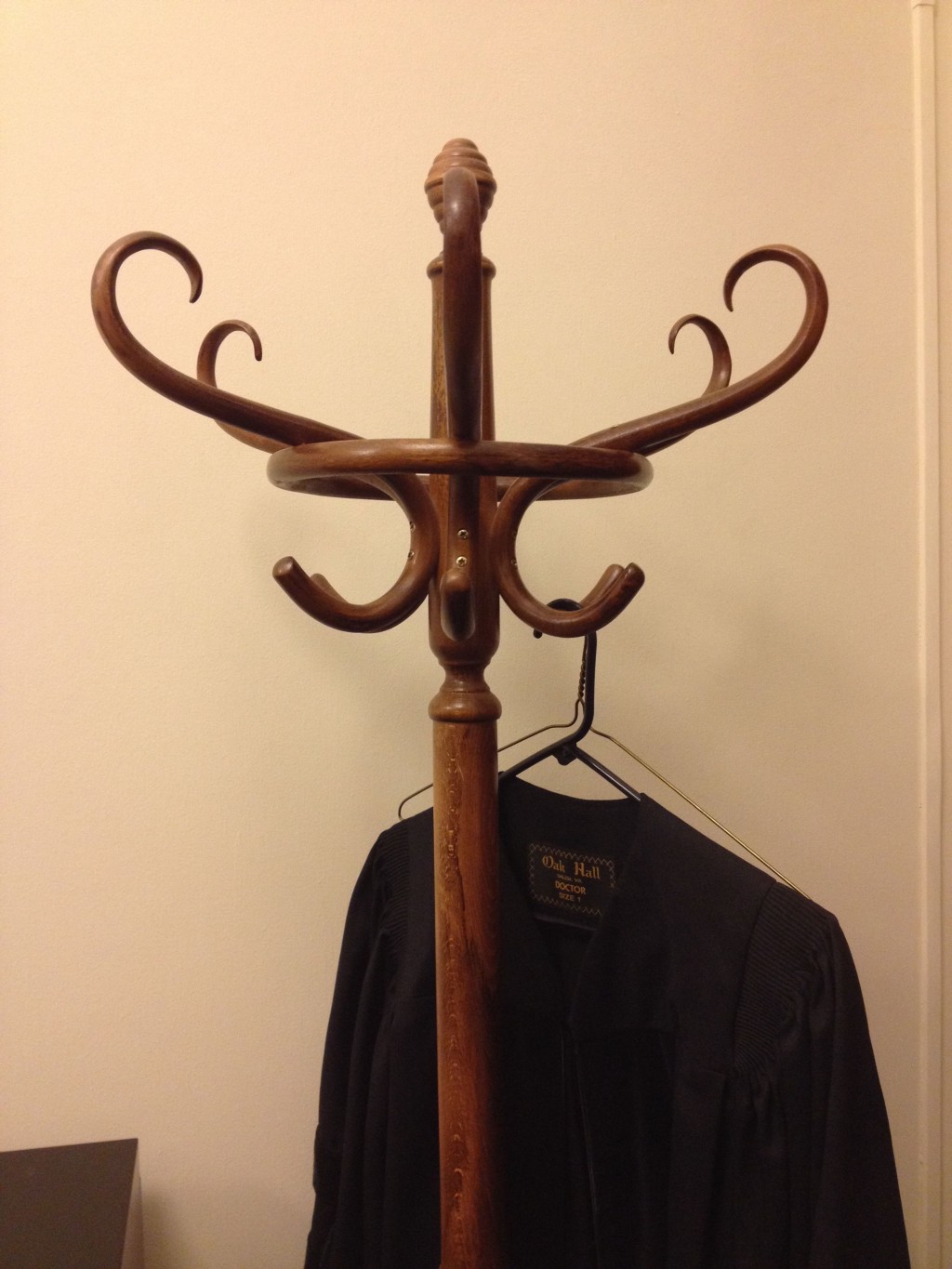Tempus Ferax
The student becomes the teacher becomes the student

The clock on the wall of one of my classrooms has stopped. The clock claims that it is 8:40, even when it’s not. The brokenness suggests 8:40 a.m. (time of cereal and socks) rather than 8:40 p.m. (time of drinks or lying down). There was a broken clock on the wall of my middle school biology lab too; its stopped hands taunted us. It was like the clock was saying, “It will be biology forever and you’ll never grow up.” Always a kid dragging on a school uniform, never a grown-up loosening their tie over a cocktail.
The costumes people put on in high school stick to them. “Badly behaved” was my costume once, but now it’s just my skin. I was exactly the kind of student I find the hardest to deal with now: one who finishes everything really quickly and then makes a bunch of jokes, if she shows up to class at all. The hardest thing is knowing that you can’t go back. I never grew up or became responsible, and yet here I am all the same, yelling at some kid who can’t keep his mouth shut. Left alone, I’ll sleep until noon and never do any homework. Cut class, smoke cigarettes: at school I showed no courtesy to my fellow students, and distracted them willfully. I wasn’t an evil kid, or mean — just badly behaved.
It’s very difficult to teach without remembering being a student. Broken clocks are always broken in the same way. Cereal is always depressing. You learn your role at school — how to recognize friends and enemies, the things you can do to make other people laugh — and in turn you learn how classrooms make you feel. The novice teacher experiences something peculiar the first time she first walks out in front of a group of young people. She steps through a portal that both transports her back and hurls her forward into another whole dimension. The hour and the minute hands spin in opposite directions, and the novice teacher must reconfigure her brain. Whatever she does, the novice teacher’s identity will come into contact with a universe of classrooms past. She slides in and out of the present moment, trying on old memories of other people for size. The distance from the front to the back of the classroom is small, but the air is very different up there.

Will the new teacher try on the armor of a teacher she feared, or emulate the one who was most kind to her? Will she disguise herself, or become somebody new? Often the new teacher will choose to inhabit teacherliness as a costume. By this of course I mean a stereotype of teacherliness: starchy in manner, brusque and brisk, funny only in the wryest of wry ways. She may wear a suit, wear her hair in some kind of low ponytail. She will become a cardboard cutout of a teacher, so that her humanity does not distract her students or allow them to latch onto signs of life in an effort to mistake her for a friend.
Inhabiting this teacherly costume makes the whole procedure easier, in some ways. The students must behave politely and rise to the challenge when the teacher asks them a question. The teacher’s job is to facilitate that rising, not distract from it. And distraction in the shape of a teacher can take on many forms. Not hotness, you understand: students are smarter than that. I mean that a teacher who can scale herself away from a self down into a type (always modeled on the teachers of her own past) can predict and manage the human relationships that grow inside her classroom.
The hands of the clock are supposed to go around. The minute hand is supposed to overtake the hour hand, teaching it how to go on its circular journey by example. Gentle and predictable, the teacher gives a rhythm to the days that tick by, until the graduation bell chimes and the whole thing rewinds. I thought it would make sense by now, from this side of the classroom — I thought I’d learned all there was to know about school. But every two minutes I glance up to check the time. Reflexes last longer than individual clocks, I guess, and people don’t really change.
Josephine Livingstone is a writer and academic in New York.
